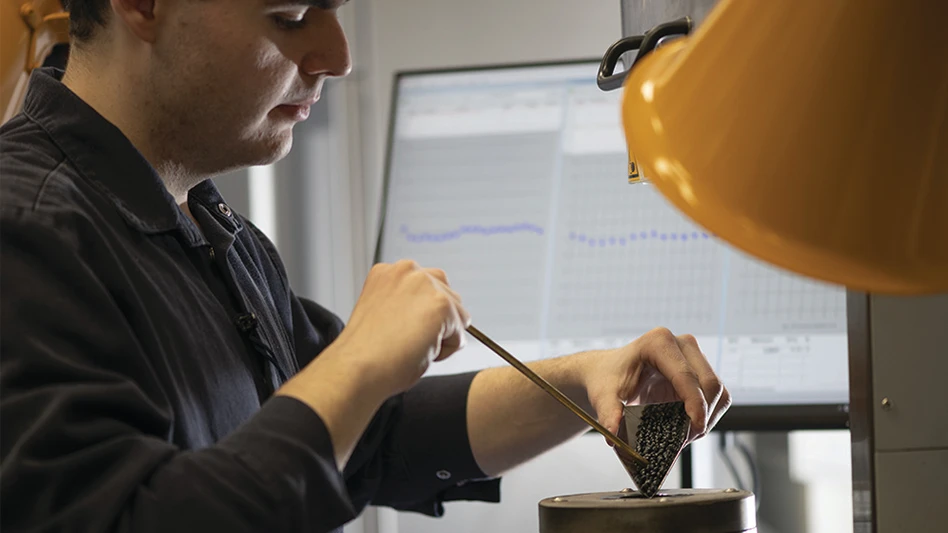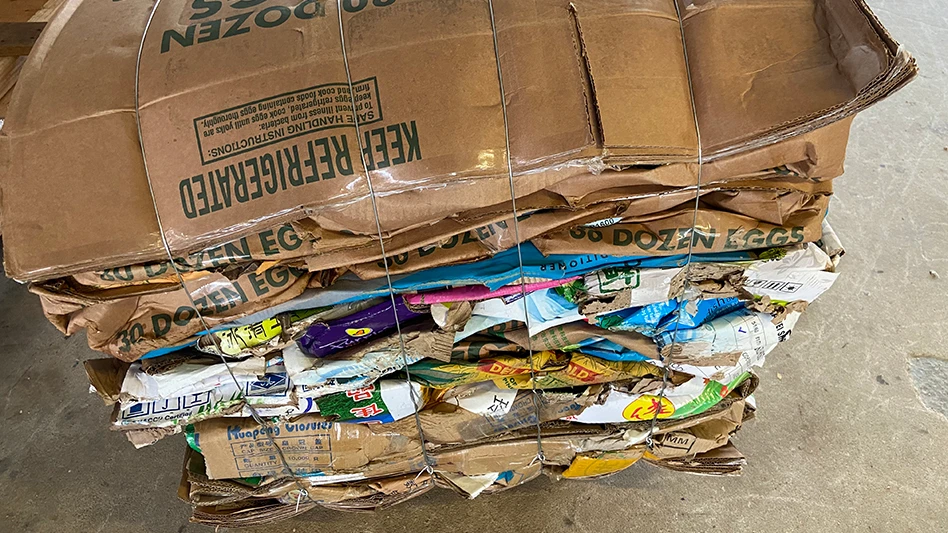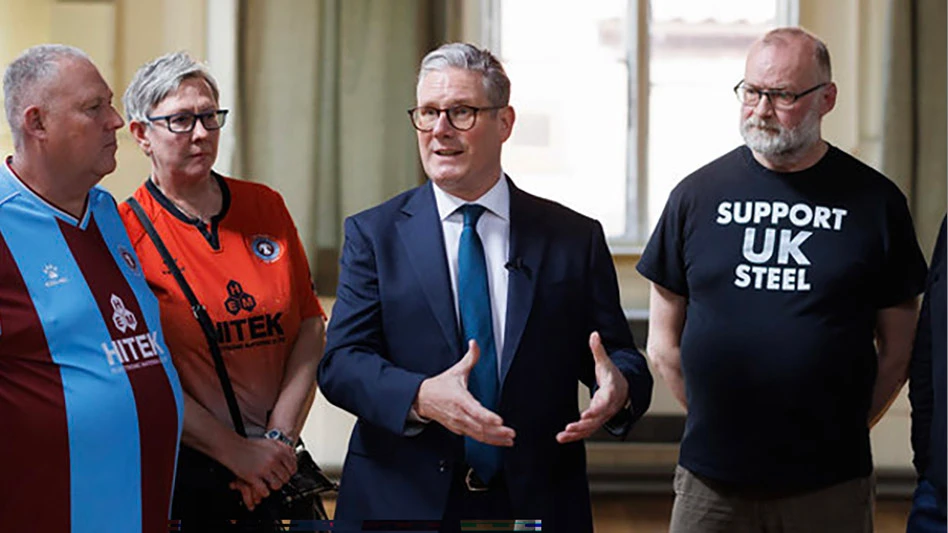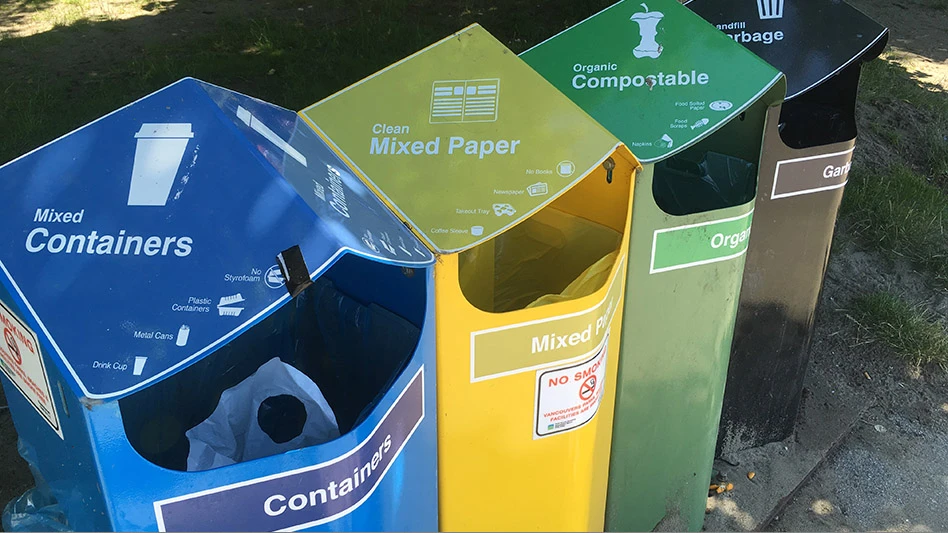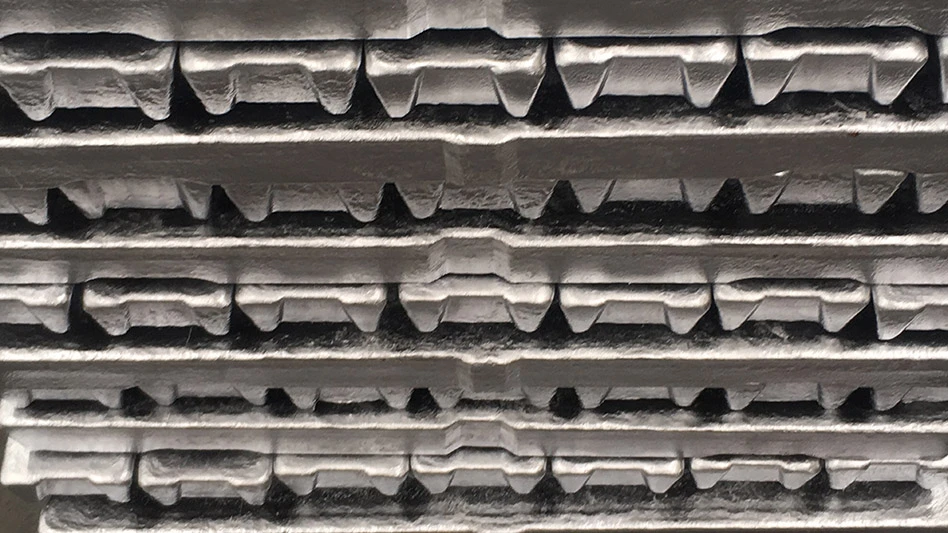The way paper recyclers operate has changed, says Joe Benedetto III, and he believes his company, Tidewater Fibre Corp. of Chesapeake, Va., has adjusted well to those changes.
Benedetto is from a family with roots in the New York City paper and rag recycling trade, and he has heard the stories of how paper stock dealers, packers and scavengers conducted business in the first half of the 20th century.
While changes of many types have taken place, one of the most noteworthy, says Benedetto, is the influx of material coming in via curbside recycling programs. Benedetto and other Tidewater Fibre leaders have made sure the company is positioned to tap into that stream, creating a strong and growing company that handles several grades of paper and additional recyclable commodities.
Tapping into the New Stream
The Benedetto family traces its recycling roots to the late 19th century, when family members began collecting paper, rags and other recyclables in 1897.
Without question, the scrap collection and recycling business has changed dramatically over the course of a century. The Benedetto family has done more than bear witness to those changes, however. Key decisions have been made to take advantage of new markets and grow as a result of shifts in the recycling industry.
Specifically, Joseph Benedetto Jr. moved south from a competitive New York paper stock industry in 1973 and founded Tidewater Fibre in the Norfolk-Tidewater region of eastern Virginia.
The move proved to be a timely one, as the Tidewater region has grown steadily (and at times rapidly) in the nearly three decades since the company was started.
While re-locating to a region with a growing population that generates more paper each year was one key, the other was deciding to pursue materials generated through municipal curbside recycling programs.
"Curbside programs in the last 10 to 15 years have changed the way a fair amount of recyclable material is collected," remarks Joe Benedetto III, the son of Tidewater’s founder and the current president. "That’s one of the big changes we’ve seen occur—recycling has caught on enough to begin implementing these larger scale programs."
Adds Benedetto, "Years ago, no one had heard of municipal recycling. The Boy Scouts and church groups had drop boxes for newspapers, and that was a major collection point for that grade. But we realized the industry was changing and that we would have to go to the municipalities and pick up material as well as handle the sale and marketing of it. We made the investment in trucks and in processing equipment and developed the strength to respond to industry trends."
Regarding the processing of curbside commodities, Joe says, "We had been doing the processing of material, but not so much collection. Now the municipalities and solid waste agencies have wanted us to do the collection as well as the processing."
Rather than relying on old newspapers (ONP) and old corrugated containers (OCC) to come to it, Tidewater has become a leading contractor of recycling collection services in Virginia. Mike Benedetto, brother of Joe III, is a vice president with the company with responsibilities for procuring new business. The two brothers have worked to secure contracts to guarantee a steady supply of materials for Tidewater to process and ship.
The company’s contracts include a public-private partnership agreement with the Southeastern Public Service Authority (SPSA), processing material (but not collecting) from 155,000 households in the Tidewater area, and an agreement with the Central Virginia Waste Management Authority in the Richmond area that covers both collection and processing from more than 200,000 generators.
The company manages a fleet of more than 120 trucks collecting recyclables from nearly 500,000 households and businesses in Virginia and North Carolina.
Tidewater Fibre operates four material recovery facilities (MRFs), three in Virginia and one in Durham, N.C., which process not only the recyclables collected by Tidewater, but also material collected by municipalities and contractors from another 200,000 households.
|
Tidewater Fibre by the Numbers |
|
• Year Founded: 1973 • Number of MRFs: 4 • Number of Employees: 350+ • Vehicles in Fleet: 120 • Number of Recyclable Commodities Handled: 23 (including 15 paper grades) • Number of Households Receiving Collection Service: 480,000+ • Number of Households Receiving Processing Service: 680,000+ |
Major investments have been made to boost Tidewater into a significant regional player. The company’s MRFs have been or are being upgraded to sort and process a large volume of material, while the Tidewater collection fleet has been adding automated trucks that collect 96-gallon bins of mixed recyclables with just one driver who doesn’t need to leave the vehicle.
While the company’s roots are in scrap paper, as the Tidewater Fibre name implies, the focus on curbside materials has prompted Tidewater to get familiar with metals, glass and plastic markets as well.
"Our core business has always been in paper, but we’ve been successful in always providing a market for what is collected," says Benedetto. Markets for aluminum cans, steel cans and number one and two plastic are well established. Some other materials, including plastics three through seven, glass and aseptic containers, can provide a much greater challenge.
"For some programs we’ve added things like boxboard and chipboard and magazines," remarks Benedetto. "Initially these programs were news only. Magazines are not a problem [to process]. The boxboard and chipboard create some challenges. Adding paper grades increases the volume but forces us to work harder to clean the newspaper."
Sort, Bale and Ship
With its shift from clean paper grades to a mixed stream of curbside commodities, Tidewater Fibre Corp. has invested in a wider array of sorting and processing equipment. Material is often collected in a single-stream, sometimes with packer trucks.
According to Tidewater vice president of operations Don August, material is tipped onto the receiving floor and "from there it is all fed by loader onto the sorting line. On the first sorting line we’re pulling primarily fiber while the containers are segregated and go to a second sorting area."
From the fiber line ultimately emerge, "a Number Seven/Eight news and a Number Six news grade and cardboard," says August.
Sorting is accomplished with a combination of manual labor and separating equipment. "The big cardboard and other big pieces are picked off by people," says August. At its Chesapeake and Chester facilities, a series of Dutch-made star screens has been installed by Van Dyk Baler Corp., Stamford, Conn. "Lubo manufactures the screens. People also monitor and pick the stream after it passes through the Lubo equipment to keep the stream clean. The end product coming off is the News grade."
"The Lubo system is relatively new," notes August. "It does two things that are helpful. It increases the throughput and makes the job of the people sorting a little easier." Even though the sorting line is moving faster, the material flowing by has a more uniform and shallower burden depth, says August. The efficiency of the system means sorters at the back end of the process have less rogue material to look for.
August acknowledges that creating clean, preferred grades from the compacted single-stream that enters their facilities provides plenty of challenges. "It makes it tough. We had to spend a fair amount of time planning a facility to give ourselves ample room and processing to handle the different stream. The key is to keep all the options possible. We’re designed to take a single stream with an automated program, which requires more separating. Automated collection [with packer trucks] is another compounding factor."
But the composition of grades preferred by paper mills is something August knows well. His background in the pulp and paper industry included stints as a fiber procurement manager for paper mill companies.
Unlike some processors of curbside material, Tidewater does not own a landfill, and so has an additional incentive to recover as much material as possible. Still, homeowners place items in the recycling bin for which the company does not have an end market. "Some of this material, such as swimming pool liners, heavy trash and plastic bags ends up in the trash stream. A fair amount of it we are able to compact and it goes into a refuse-derived fuel that we can ship to a facility operated by SPSA," notes August.
MRF Management
Tidewater Fibre Corp.’s decision to enter the municipal recycling arena at full speed has resulted in the growth the company was looking for.
The company now operates four MRFs to serve markets in the different metropolitan regions in which it operates. The MRF in Durham, N.C., sits on 21 acres with 110,000 square feet under roof.
The newest facility, in Chester, Va., near Richmond, also features automated Bollegraaf and Lubo sorting technology to handle the single-stream collected materials that arrive there. Like the other MRFs, it must be designed to handle a variety of materials while still having the ability to produce clean, desirable grades of commodities.
"Usually, we have very limited input on what is collected," notes Joe Benedetto III. "Normally, municipalities know what there are available markets for."
Market conditions have made careful MRF management even more critical. "We’re in a downturn. Prices are poor," says Joe. "You become even more focused on cost structure and trying to add value."
Benedetto believes that coping with fluctuating commodities markets is providing the incentive for the next major change to affect recyclers: the increased use of hedging. "We explore things like financial swaps and commodity pricing," he notes. "We’d like to take some of these commodity swings out of the market. I’d prefer to quote a municipality on a price and know I can meet that price. I’ll assume the risk for the fluctuations, and share that risk in some type of a financial swap or long-term contract."
The widespread use of financial instruments could be the next great change to affect the recycling industry, Benedetto comments.
"In our industry, the biggest change has been the fact that 20 years ago almost all the paper came in across the scale and was brought by scavengers. Today almost none of it is. Now it comes from curbside programs.
I think in the next 10 years will be related to hedging. I think that is the next big change that we will see. People will work to take the fluctuation out. People will reduce the risk that way," states Benedetto.
"We have used that to our advantage. I feel as a company we have a very good understanding of it. It can be somewhat complicated, but as more people recognize it as a tool—not something you’ll make money on, but just something you’ll use to reduce your risk—I think it will grow in acceptance."
Despite the changes, both past and future, Benedetto says that providing service to customers remains the constant requirement for a successful recycler. In the company’s promotional literature, a saying is quoted that the company vows to follow: "We can’t promise you it will never rain, but we will promise to hold an umbrella over your head when it does."
Adds Benedetto, "I think our key philosophy is service to the customer. Our job is to produce a product that is marketable and that meets quality standards and that has value to it."
The author is editor of Recycling Today.

Explore the September 2001 Issue
Check out more from this issue and find your next story to read.
Latest from Recycling Today
- Acerinox names new North American Stainless CEO
- Greenwave closes 2024 books with red ink
- Steel Dynamics nets $217 million on record shipments
- Massive Chinese steelmaking rebound recorded in March
- LME looks into sustainable metal pricing
- OnePlanet Solar Recycling closes $7M seed financing round
- AMCS launches AMCS Platform Spring 2025 update
- Cyclic Materials to build rare earth recycling facility in Mesa, Arizona
